- Home
- Terry Brooks
Star Wars: Episode I: The Phantom Menace Page 28
Star Wars: Episode I: The Phantom Menace Read online
Page 28
“Ready this time, he was,” Yoda acknowledged grudgingly. “Ready to train the boy, he may not be.”
“Defeating a Sith Lord in combat is a strong test of his readiness for anything,” the Council leader pressed. His eyes stayed with Obi-Wan and Anakin. “There is no doubt. The one who tested him was a Sith.”
Yoda’s sleepy eyes blinked. “Always two there are. No more, no less. A master and an apprentice.”
Mace Windu nodded. “Then which one was destroyed, do you think—the master or the apprentice?”
They looked at each other now, but neither could provide an answer to the question.
That night Darth Sidious stood alone on a balcony overlooking the city, a shadowy figure amid the multitude of twinkling lights, his visage dark and angry as he contemplated the loss of his apprentice. Years of training had gone into the preparation of Darth Maul as a Sith Lord. He had been more than the equal of the Jedi Knights he had faced and should have been able to defeat them easily. It was bad luck and chance that had led to his death, a combination that even the power of the dark side could not always overcome.
Not in the short run, at least.
His brow furrowed. It would be necessary to replace Darth Maul. He would need to train another apprentice. Such a one would not be easy to find.
Darth Sidious walked to the railing and put his hands on the cool metal. One thing was certain. Those responsible for killing Darth Maul would be held accountable. Those who had opposed him would not be forgotten. All would be made to pay.
His eyes glittered. Still, he had gotten what he wanted most from this business. Even the loss of Darth Maul was worth that. He would bide his time. He would wait for his chance. He would lay the groundwork for what was needed.
A smile played across his thin lips. A day of reckoning would come about soon enough.
There was a grand parade the following day to publicly recognize the newfound alliance of the Naboo and Gungan peoples, to celebrate their hard-fought victory over the Trade Federation invaders, and to honor those who had fought to secure the planet’s freedom. Crowds lined the streets of Theed as columns of Gungan warriors astride kaadu and Naboo soldiers aboard speeders rode through the city to the sounds of cheering and singing. Fambaa lumbered down the avenues, draped in rich silks and embroidered harnesses, heads weaving from side to side on long necks. Here and there, a captured Federation tank hovered amidst the marchers, Naboo and Gungan flags flying from cannons and hatchways. Jar Jar Binks and General Ceel led the Gungans, both riding their kaadu, Jar Jar managing to stay aboard this time for the entire parade, though he looked to those in attendance to be having a bit of trouble doing so.
Captain Panaka and the Queen’s own guards stood at the top of the stone steps in the central plaza, watching the parade approach. Panaka’s uniform was creased, metal insignia on his epaulets gleaming, proud and strong.
Anakin Skywalker stood with Obi-Wan Kenobi near the Queen. He was feeling out of place and embarrassed. He thought the parade wonderful, and he appreciated being honored with the others, but his mind was elsewhere.
It was with Qui-Gon, gone back into the Force.
It was with Padmé, who had barely spoken to him since he had been accepted for training by the Jedi Council.
It was with his home, to which he might never return.
It was with his mother, whom he wished could see him now.
He wore the clothing of a Jedi Padawan, his hair cut short in the Padawan style, a student in training to become a Knight of the order. He had achieved all that he had hoped in coming with Qui-Gon to Coruscant and beyond. He should have been happy and satisfied, and he was. But his happiness and satisfaction were clouded by the sadness he could not banish at losing Qui-Gon and his mother both. They were lost to him in different ways, to be sure, but they were gone out of his life. Qui-Gon had provided the stability he required to leave his mother behind. With the Jedi Master’s death, Anakin was left adrift. There was no one who could give him the grounding that Qui-Gon had provided—not Obi-Wan, not even Padmé. One day, perhaps. One day, each of them would play a part in his life that would change him forever. He could sense that. But for now, when it mattered most, he felt all alone.
So he smiled, but he was sick in spirit and lost in his heart.
Perhaps sensing his discomfort, Obi-Wan reached over to put a reassuring hand on his shoulder. “It’s the beginning of a new life for you, Anakin,” he ventured.
The boy smiled back dutifully, but said nothing.
Obi-Wan looked off at the crowds in front of them. “Qui-Gon always disdained celebrations. But he understood the need for them, as well. I wonder what he would have made of this one.”
Anakin shrugged.
The Jedi smiled. “He would have been proud to see you a part of it.”
The boy looked at him. “Do you think so?”
“I do. Your mother would be proud of you as well.”
Anakin’s mouth tightened, and he looked away. “I wish she was here. I miss her.”
The Jedi’s hand tightened on his shoulder. “One day you will see her again. But when you do, you will be a Jedi Knight.”
The parade wound through the central plaza to where the Queen and her guests viewed the procession. She stood with her handmaidens, Governor Sio Bibble, Supreme Chancellor Palpatine, Boss Nass of the Gungans, and the twelve members of the Jedi Council. R2-D2 occupied a space just below the handmaidens and next to Anakin and Obi-Wan, domed head swiveling from side to side, lights blinking as his sensors took everything in.
R2 beeped at the boy, and Anakin touched the little droid’s shell gently.
Boss Nass stepped forward and held the Globe of Peace high over his head. “Dis grand party!” an exuberant Jar Jar shouted above the noise of cheering and clapping. “Gungans and Naboo, dey be friends forever, hey?”
His enthusiasm made Anakin smile in spite of himself. The Gungan was dancing up and down, long ears flapping, gangly limbs twisting this way and that as he mounted the steps. Jar Jar would never let the bad things in life get him down, the boy thought. Maybe there was a lesson to be learned in that.
“We bombad heroes, Annie!” Jar Jar laughed, lifting his arms over his head and showing all his teeth.
The boy laughed. He guessed maybe they were.
On the broad avenue below, in a long, colorful ribbon of life, the parade that had carried them to this place and time continued on.
A CONVERSATION WITH
TERRY BROOKS
Del Rey: A lot of people were surprised to learn that Terry Brooks would be doing the novelization of The Phantom Menace. You’re known as a fantasy writer, while Star Wars, as we all know, is science fiction. What convinced George Lucas that you were the right man for the job?
Terry Brooks: It’s hard to know exactly why George selected me for the work on adapting TPM. It wasn’t something we discussed. He did say he was very familiar with my work, and I’m sure as well that he held some discussions with the people at Del Rey Books. Also, our connection goes all the way back to 1977, when both Star Wars and Sword of Shannara were published under the guidance of Del Rey editor in chief Judy-Lynn del Rey. Judy-Lynn believed strongly in both projects, and she used to talk to me about Star Wars and George and to George about Sword and me. Perhaps something of that carried over. I would add that Judy-Lynn and her husband, Lester, placed a high premium on storytelling. I think they found solid storytelling components in both Sword and Star Wars, and that was what attracted Judy-Lynn to both. As for my writing science fiction, I asked George about that as well. He said, “Don’t worry, I don’t make science fiction movies.” He views Star Wars, as I do, as adventure storytelling. I agreed with him. I write adventure stories, so the transition was pretty easy.
DR: I can’t help feeling it’s more than coincidence that SW and Sword appeared in 1977 to such phenomenal success. It’s as if both the movie and the novel tapped into something similar in their audiences, a powerful (though perhaps unconscious) nee
d for mythic heroes that other artists of the time simply weren’t recognizing or responding to.
TB: It was Lester del Rey’s firm belief that publishing was ignoring fantasy as a viable form of commercial fiction. It was believed at that time that only Tolkien would sell to a large market and that fantasy in general couldn’t find a sizable audience. Lester believed the prevailing opinion was wrong. It was with this in mind that he published Sword and proved his point. You might argue that Star Wars made the same point regarding space opera in movies. Both opened the door to a whole raft of other books and movies grounded in adventure storytelling that turned out to be very successful and changed the face of book writing and movie making. For example, look at how much mainstream fiction relies on fantasy techniques to sustain plot.
DR: By “fantasy techniques,” do you mean the use of magic and similar fantastic elements, or are you referring to literary techniques employed by fantasy writers?
TB: I’m referring to the use of magic or similar fantasy elements. Fantasy writers have no literary techniques. [laughs]
DR: What’s it like to adapt a movie into a book? Do you go through the screenplay line by line, turning it into narrative prose, or is the process less straightforward? How much freedom did you have with TPM?
TB: George told me right from the first that he wanted to see me take a different approach to adapting his movie. He had originally thought to tell the story from Anakin’s point of view. Could I do that in the book? I could write new material and have a free hand in adapting the movie. This is a hard challenge for a writer to ignore. I was very pleased to discover how much freedom I was going to have. So the book is actually an expansion of the movie. It begins in a new place and gives us more information on characters and background. Adapting movies into books isn’t as hard as it might seem. Mostly, you have to take a script containing dialogue and some brief scene-setting and expand it. I block out the script into chapters or scenes, then look for a way to do the story. You have to remember while you’re doing this that everything a moviegoer sees on the big screen, you have to describe with words in your book.
DR: You’re no stranger to the bestseller lists; unless I’m mistaken, in fact, all of your books have made the New York Times list. But TPM was the first to reach #1. Does it bother you at all that a novelization of someone else’s movie did better than your own fiction?
TB: Bite your tongue, Del Rey. As a matter of fact, Wishsong of Shannara was a #1 bestseller on the New York Times trade paperback bestseller list in 1985. Six of the other books reached #2 in hardback. So I haven’t suffered too badly. Nor would I agree that the Star Wars book has done better than my own fiction. I wouldn’t have taken the job of adapting it if I thought that would be the case. There are various measuring sticks of success, and the one I rely on most completely is how close I feel to the material. While I enjoyed doing TPM, no way could I ever feel closer to someone else’s material than I do to my own. George would understand this, I think.
DR: Some writers work from an outline that they develop rigorously beforehand and then follow religiously from the first page to the last, while others wander wherever inspiration leads them. What about you?
TB: I’m fairly famous (or infamous) for my stand on this issue. I believe strongly in approaching your work from an outline. I believe, especially with long fiction, that an outline keeps you organized and focused over the course of the writing. I am not wedded to an outline once it is in place and will change it to suit the progress of the story and to accommodate new and better ideas, but I like having that blueprint to go back to. Also, having an outline forces you to think your story through and work out the kinks and bad spots. I do a lot less editing and rewriting when I take time to do the outline first.
DR: A lot of people have the idea that writers work by pure inspiration, waiting for the muse to strike and then churning out a novel in a feverish burst of creativity.
TB: A lot of people would be wrong. Still, many writers do write on inspiration because outlining just doesn’t work for them. Writers approach their material and their jobs in different ways. But I believe most beginning writers would be better served in their efforts to write something publishable by doing as much preparation as they can.
DR: How should a beginning writer approach the task of outlining a novel, and how specific should that outline be? This is a subject that many creative writing courses don’t address, unfortunately.
TB: I usually cover this in an hourlong speech. However, in twenty-five words or thereabouts, the best approach is to do a chapter-by-chapter outline that at least hits the high points of the writer’s story arc, considering which characters will appear, what subject matter will be addressed, what point of view will be used, and how each chapter will end. I also favor at least a paragraph workup on each major character. Even before that, I suggest living with your story and characters in your head for a while before you start to write even a single word.
DR: Angel Fire East, the final volume of the contemporary fantasy trilogy that began with Running with the Demon and continued in A Knight of the Word, is your latest book. It’s a wonderful title, full of poetry and mystery. How does it relate to the novel? And can you say something about the importance of titles in your work?
TB: Titles are important to me, although I would hasten to say that a lot of mine have been changed by the publisher because they didn’t work in marketing the book. Angel Fire East was not changed, and it speaks to the book as completely as the other two titles in the Word & Void series. It comes from a story in the book that a young mother tells her little girl about angels gathering up each night all the love mothers have for their children to give light to the sun at the beginning of a new day.
DR: Were you told that story as a boy?
TB: No, I made it up myself.
DR: John Ross, the Knight of the Word, is a truly memorable creation. Both empowered and crippled by a gift of magic, he is doomed to visit in his dreams a horrific future that will come to pass for all humankind unless he acts now, in the present, to prevent it. His life is one of sacrifice and loneliness, of endless battles fought against the evil servants of the Void. You seem drawn to complicated characters such as this, men and women who are full of contradictions, blessed and cursed with knowledge and power. The Druid Allanon from the Shannara books comes to mind as well. What is it about characters like John Ross and Allanon that interests you as a writer?
TB: Good question. I’m sure extensive therapy will eventually yield an answer. I’m drawn to characters like these, people who are conflicted and full of contradictions. Clearly, they most closely mirror the people we know in real life who intrigue us. I am also drawn to people who are given vast power and responsibility and must wield it wisely. They don’t, always. Sometimes it proves too much for them. Sometimes they fail. It always takes a toll on them, because an exercise of power is emotionally and physically draining by nature. How these people cope, like John Ross and Allanon, offers great opportunities for storytelling and an examination of ourselves and our own lives.
DR: So you are telling more than “just” adventure stories.
TB: You would be surprised at what I am telling you. But on the most basic level, I am always telling an adventure story first.
DR: What makes a good adventure story?
TB: A good writer. No, I’m serious!
DR: The Shannara series is one of the most popular fantasies since The Lord of the Rings, to which it’s often compared. Do you feel a debt to Tolkien? A sense of competition?
TB: I am always flattered when Shannara is compared to LOTR. I don’t think they are all that much alike, save on a very superficial basis. Tolkien was working from an entirely different point of view and place than I am. That being said, he is the master, and virtually every writer working in fantasy today has read him and is indebted to him.
DR: Why then, beyond the superficial resemblance to LOTR, did the Shannara books strike such a nerve with readers?<
br />
TB : The Shannara books are big, historical family sagas set in an imaginary world in which magic has replaced science. Their primary strength is in the storytelling. As I’ve mentioned earlier, that was what drew the del Reys to Sword in the first place. I think readers like to be taken on journeys to strange, exotic places and made to feel as if they are part of what is happening. They want to experience the excitement and fear and doubt and exhilaration of the book’s characters. I think that’s something I’ve learned how to do.
DR: You’re now embarking on a continuation of the saga, with five new novels forthcoming from Del Rey over the next few years. Can you give us some idea of where you will be taking the series?
TB: The first three books in the new grouping will take us on a journey outside the Four Lands and home again. That’s about all I can tell you. I don’t like talking about books I haven’t written. I think it drains the energy out of them if I do.
DR: Any chance of Shannara being made into a movie?
TB: There is always a chance. Of course, there is a chance I might be elected president, too. Seriously, there has always been interest in the Shannara books, and one day someone might do something with one or more. But they are big, sprawling tales and they don’t lend themselves well to a two-hour format. So movies are a tough medium in which to adapt them. We’ll see.
DR: The Word & Void books might be better movie material. I can picture actors fighting over the juicy role of John Ross!
TB: That was my thinking. I still think that one of these books will get made into a movie before any of the Shannaras.
DR: Like John Grisham and others, you were a practicing lawyer before becoming a successful writer. Are all lawyers frustrated writers?
TB: All lawyers are frustrated period. There’s a lot of writing involved in being a lawyer, but I don’t know that it’s necessarily good writing. Nor does being a lawyer always foster good storytelling. No more so than any other profession.

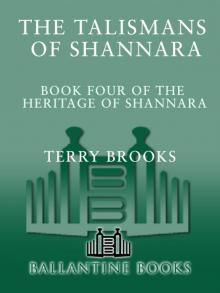 The Talismans of Shannara
The Talismans of Shannara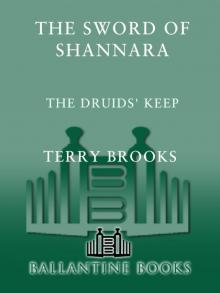 The Sword of Shannara: The Druids' Keep: The Druids' Keep
The Sword of Shannara: The Druids' Keep: The Druids' Keep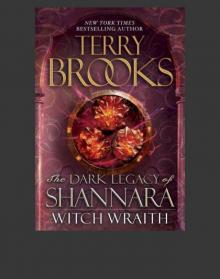 Witch Wraith
Witch Wraith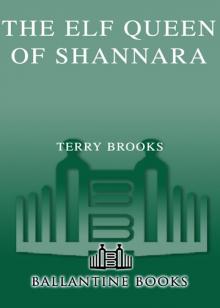 The Elf Queen of Shannara
The Elf Queen of Shannara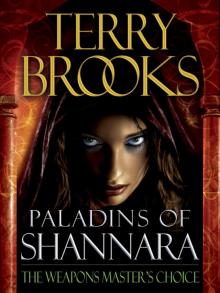 The Weapons Master's Choice
The Weapons Master's Choice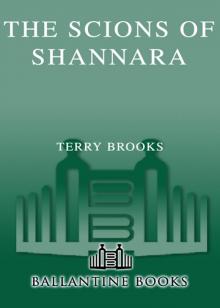 The Scions of Shannara
The Scions of Shannara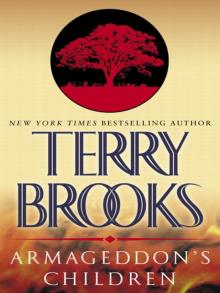 Armageddon's Children
Armageddon's Children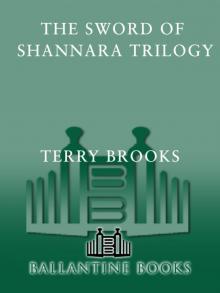 The Sword of Shannara Trilogy the Sword of Shannara Trilogy
The Sword of Shannara Trilogy the Sword of Shannara Trilogy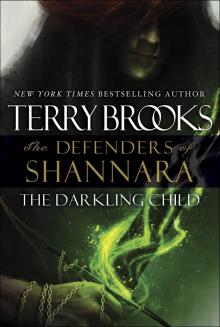 The Darkling Child
The Darkling Child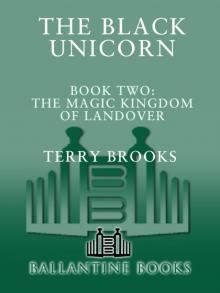 The Black Unicorn
The Black Unicorn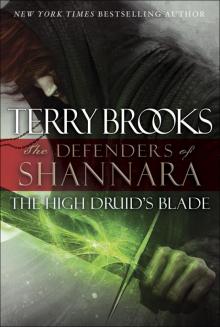 The High Druid's Blade
The High Druid's Blade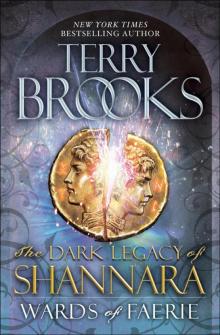 Wards of Faerie
Wards of Faerie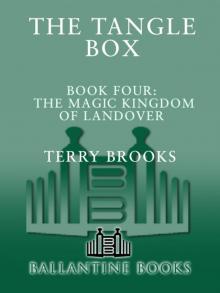 The Tangle Box
The Tangle Box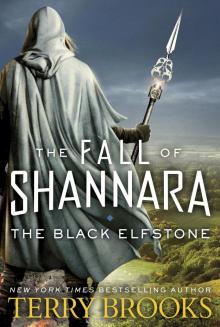 The Black Elfstone
The Black Elfstone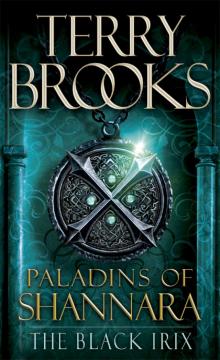 The Black Irix
The Black Irix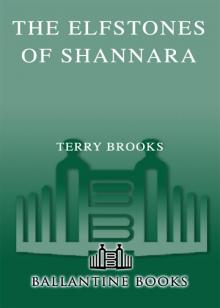 The Elfstones of Shannara
The Elfstones of Shannara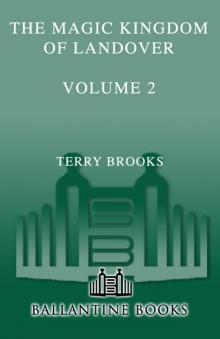 The Magic Kingdom of Landover Volume 2
The Magic Kingdom of Landover Volume 2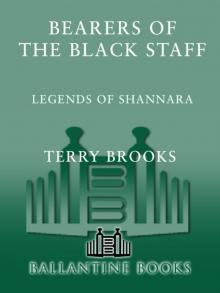 Bearers of the Black Staff
Bearers of the Black Staff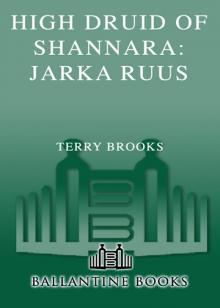 Jarka Ruus
Jarka Ruus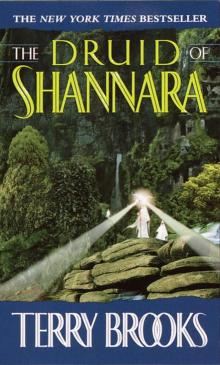 The Druid of Shannara
The Druid of Shannara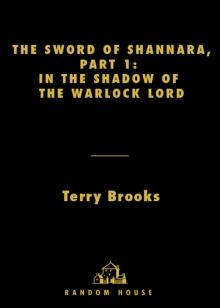 The Sword of Shannara
The Sword of Shannara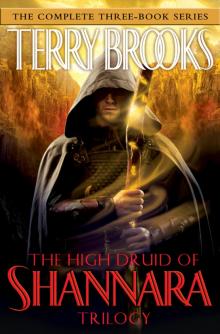 The High Druid of Shannara Trilogy
The High Druid of Shannara Trilogy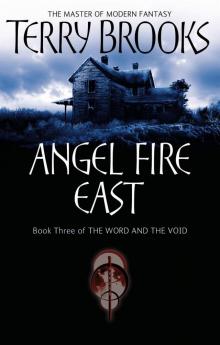 Angel Fire East
Angel Fire East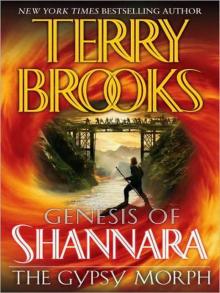 The Gypsy Morph
The Gypsy Morph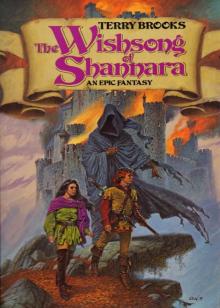 The Wishsong of Shannara
The Wishsong of Shannara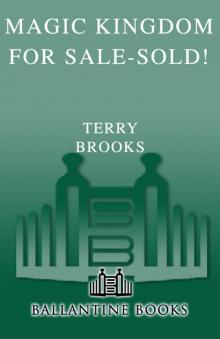 Magic Kingdom for Sale--Sold
Magic Kingdom for Sale--Sold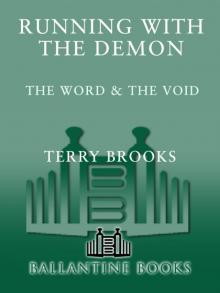 Running With the Demon
Running With the Demon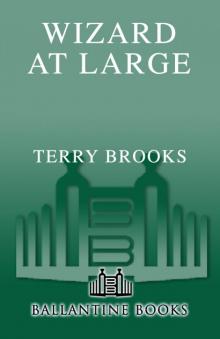 Wizard at Large
Wizard at Large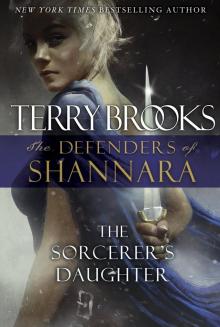 The Sorcerer's Daughter
The Sorcerer's Daughter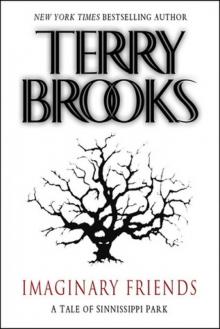 Imaginary Friends
Imaginary Friends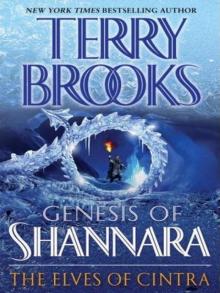 The Elves of Cintra
The Elves of Cintra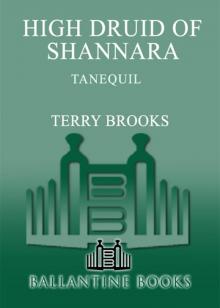 Tanequil
Tanequil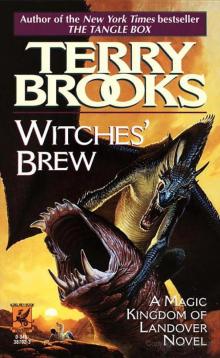 Witches' Brew
Witches' Brew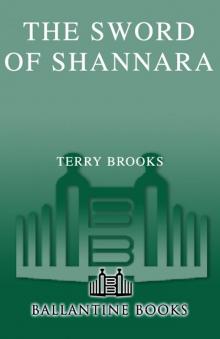 The Sword of the Shannara and the Elfstones of Shannara
The Sword of the Shannara and the Elfstones of Shannara The World of Shannara
The World of Shannara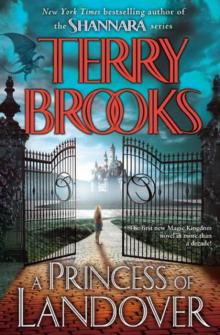 A Princess of Landover
A Princess of Landover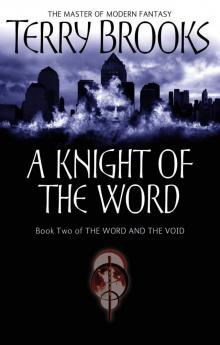 A Knight of the Word
A Knight of the Word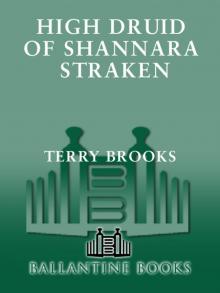 Straken
Straken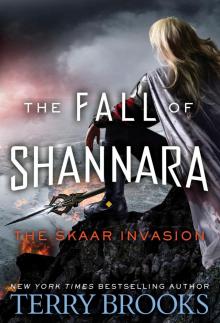 The Skaar Invasion
The Skaar Invasion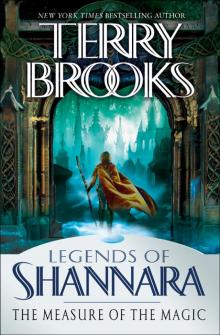 The Measure of the Magic: Legends of Shannara
The Measure of the Magic: Legends of Shannara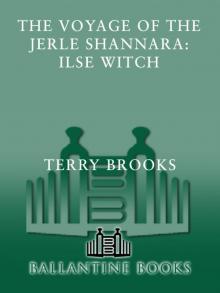 Ilse Witch
Ilse Witch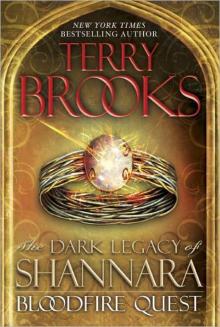 Bloodfire Quest
Bloodfire Quest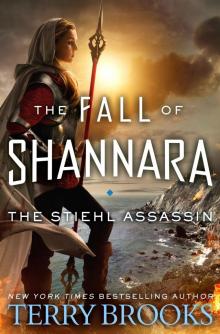 The Stiehl Assassin
The Stiehl Assassin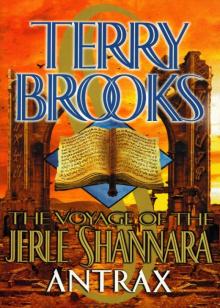 Antrax
Antrax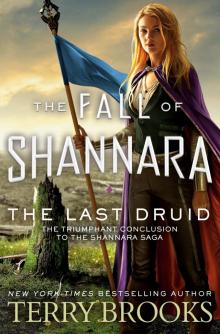 The Last Druid
The Last Druid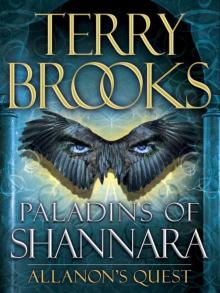 Paladins of Shannara: Allanon's Quest
Paladins of Shannara: Allanon's Quest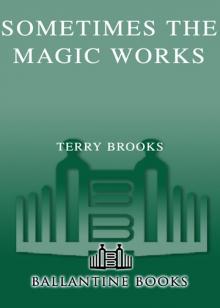 Sometimes the Magic Works: Lessons From a Writing Life
Sometimes the Magic Works: Lessons From a Writing Life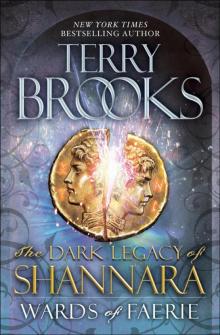 Wards of Faerie: The Dark Legacy of Shannara
Wards of Faerie: The Dark Legacy of Shannara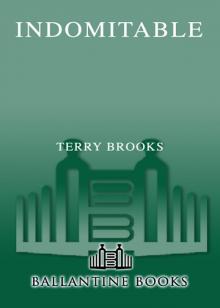 Indomitable: The Epilogue to The Wishsong of Shannara
Indomitable: The Epilogue to The Wishsong of Shannara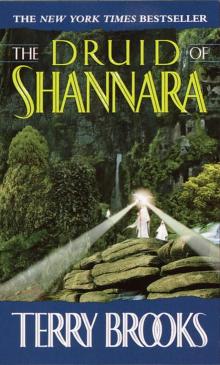 Heritage of Shannara 01 - The Druid of Shannara
Heritage of Shannara 01 - The Druid of Shannara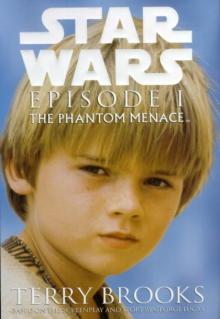 Star Wars - Phantom Menace
Star Wars - Phantom Menace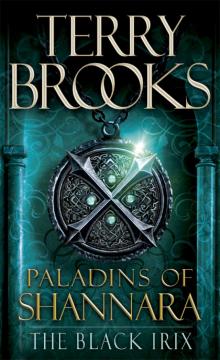 The Dark Legacy of Shannara Trilogy 3-Book Bundle
The Dark Legacy of Shannara Trilogy 3-Book Bundle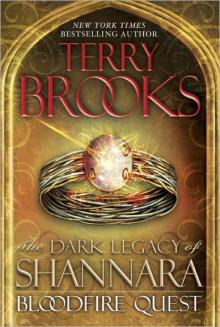 The Bloodfire Quest
The Bloodfire Quest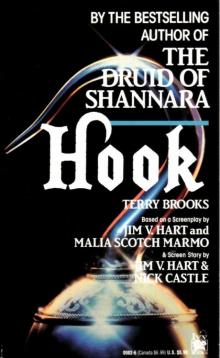 The Hook (1991)
The Hook (1991)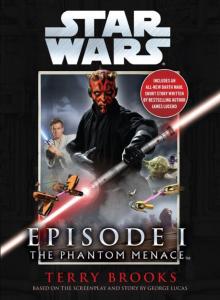 Star Wars: Episode I: The Phantom Menace
Star Wars: Episode I: The Phantom Menace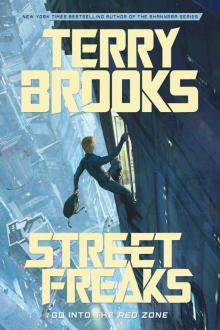 Street Freaks
Street Freaks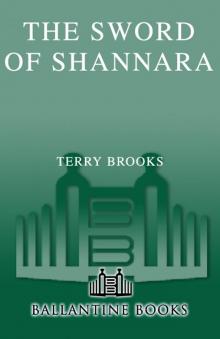 The Sword of Shannara & Elfstones of Shannara
The Sword of Shannara & Elfstones of Shannara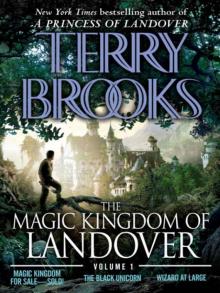 The Magic Kingdom of Landover , Volume 1
The Magic Kingdom of Landover , Volume 1 The Phantom Menace
The Phantom Menace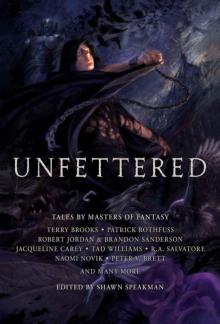 Unfettered
Unfettered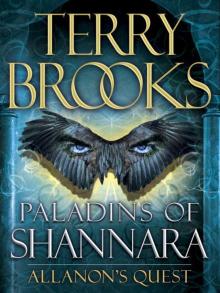 Allanon's Quest
Allanon's Quest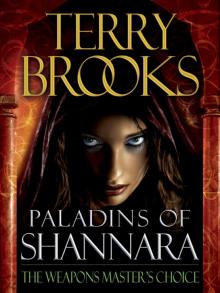 Paladins of Shannara: The Weapons Master's Choice
Paladins of Shannara: The Weapons Master's Choice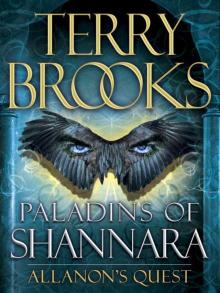 Terry Brooks - Paladins of Shannara - Allanon's Quest (Short Story)
Terry Brooks - Paladins of Shannara - Allanon's Quest (Short Story)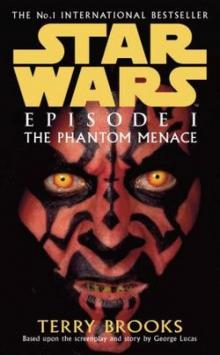 Star Wars Episode I: The Phantom Menace (star wars)
Star Wars Episode I: The Phantom Menace (star wars)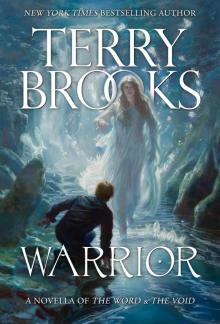 Warrior (The Word and the Void)
Warrior (The Word and the Void)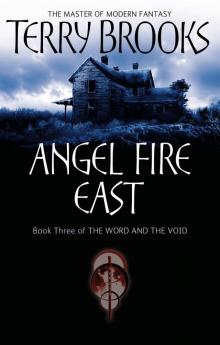 Word & Void 03 - Angel Fire East
Word & Void 03 - Angel Fire East![[Magic Kingdom of Landover 05] - Witches' Brew Read online](http://i1.bookreadfree.com/i2/04/05/magic_kingdom_of_landover_05_-_witches_brew_preview.jpg) [Magic Kingdom of Landover 05] - Witches' Brew
[Magic Kingdom of Landover 05] - Witches' Brew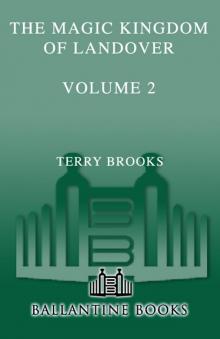 The Magic Kingdom of Landover - Volume 2
The Magic Kingdom of Landover - Volume 2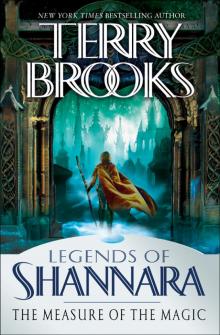 The Measure of the Magic
The Measure of the Magic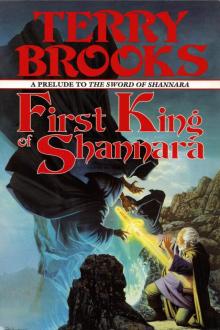 The First King of Shannara
The First King of Shannara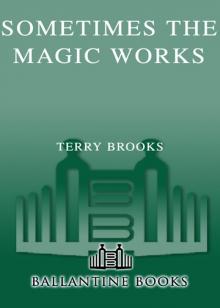 Sometimes the Magic Works
Sometimes the Magic Works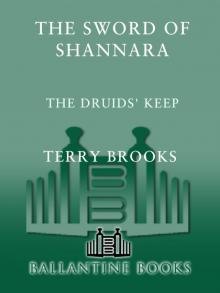 The Sword of Shannara, Part 2: The Druids' Keep
The Sword of Shannara, Part 2: The Druids' Keep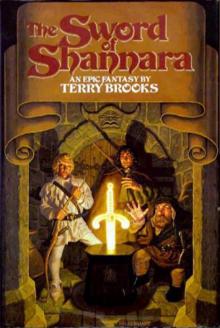 The Sword of Shannara tost-1
The Sword of Shannara tost-1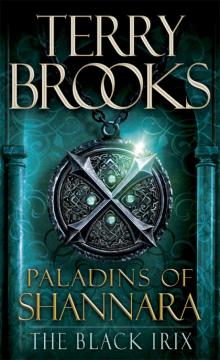 Paladins of Shannara: The Black Irix (Short Story)
Paladins of Shannara: The Black Irix (Short Story)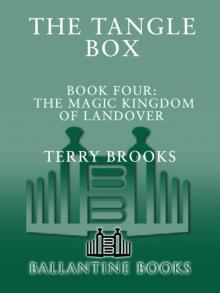 Tangle Box
Tangle Box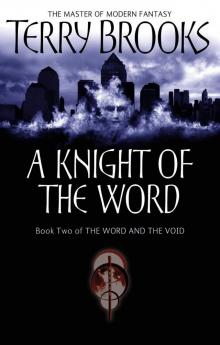 Word & Void 02 - A Knight of the Word
Word & Void 02 - A Knight of the Word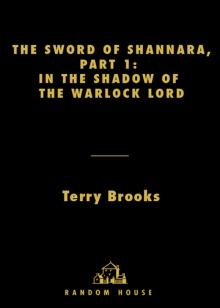 The Sword of Shannara, Part 1: In the Shadow of the Warlock Lord
The Sword of Shannara, Part 1: In the Shadow of the Warlock Lord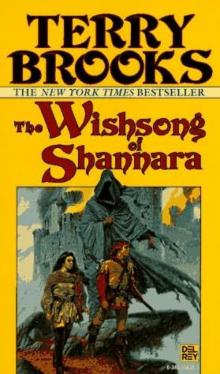 The Wishsong of Shannara tost-3
The Wishsong of Shannara tost-3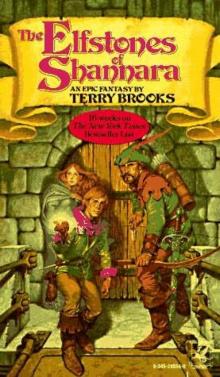 The Elfstones of Shannara tost-2
The Elfstones of Shannara tost-2